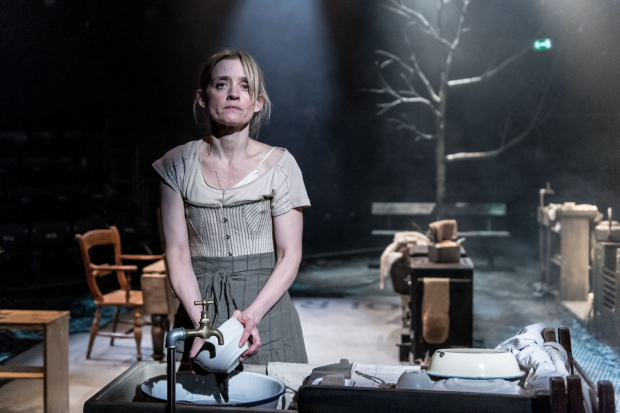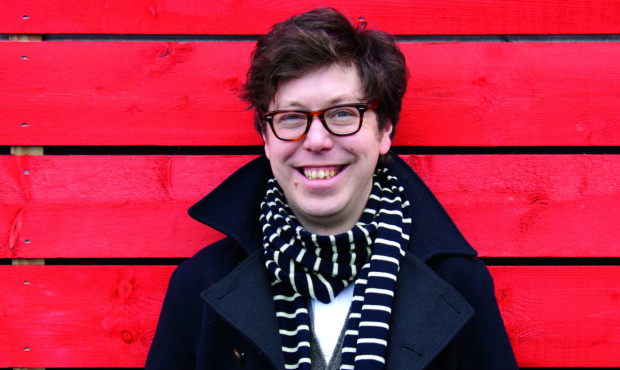Husbands & Sons (National Theatre, Dorfman)

© Manuel Harlan
When Peter Gill directed the D H Lawrence trilogy at the Royal Court in 1968, the plays, unperformed in the novelist’s lifetime, were unknown. They were revealed as the first authentic working class plays on the English stage and Christopher Hampton said that Lawrence was now seen to be the only interesting British dramatist of the early twentieth century.
The three plays – A Collier’s Friday Night, The Daughter-in-Law and The Widowing of Mrs Holroyd, the second two the strongest – occasionally pop up in regional or fringe productions, but adaptor Ben Power and director Marianne Elliott do a great service in restoring them to the National, even if the rhythm and individual atmosphere of each play is sacrificed in the anthology format.
Each play is isolated in its own space on a slightly raised platform: a table, a few chairs, crockery. Imaginary doors are knocked on with sound effects, imaginary coats and shawls donned with a gyratory, wiggly mime, but the playing is rough-cast, inflamed, Nottinghamshire accented.
The plays, heavily cut, are interleaved in a three-hour playing time, with characters from each one exchanging brief greeting on the streets, to formulate Lawrence’s Eastwood mining community. At one point, Anne-Marie Duff‘s worn-down but still seraphic Lizzie Holroyd over-hears a thumping, vicious argument between the Lamberts (Julia Ford and Lloyd Hutchinson) next door. Their bookish son, Ernest (Johnny Gibbon) – he’s had an asparagus omelette, fancy, and heard that Swinburne’s dead – recites a poem while Lizzie smokes a cigarette in a moonlit tree.
Elliott and movement director Scott Graham challenge the Gill-like austerity staging ideal for these plays. The three women writhe, modern-dance style, on their respective tables, Martin Marquez‘s drunken horror of a Holroyd husband staggers around like a comic mime and there’s a low hum of foreboding (sound by Ian Dickinson) before the disaster at the colliery. This gradual accumulation of operatic effect pays off in the final simultaneous scenes of body washing: one ritual marks the end of a life, the other the sensual renewal of a marriage.
There are, though, many minutes of inertia on Bunny Christie‘s open-plan set (each family has its surname stencilled across the floor) while Lucy Carter’s lighting focuses on the action elsewhere. A truly great, immersive production in the manner of, say, Peter Stein doing Chekhov, would have been fully integrated and genuinely continuous in real time… and bigger.
The tautest play, The Daughter-in-Law, contains the most intense performances, those of Susan Brown as the distraught mother of a newly married miner, Luther Gascoigne (Joe Armstrong, the splendidly spit image of his dad, Alun), who has made another girl pregnant; and of Louise Brealey as his wife, Minnie, the moral spine of the show, and its heart, along with Duff and Ford, both superb.
Mrs Holroyd is comforted only by Philip McGinley‘s upright electrician, but their spark is ironically extinguished by the possibility of ignition, the tragic centre of the production. Lawrence himself took the more obvious title for this theatrical synthesis in his great novel Sons and Lovers (brilliantly adapted for television in the 1980s by Trevor Griffiths), but the husbands here are drunken, misogynist anti-heroes, their cruelty a beautifully weighted concern for Lawrence and a daily test of their wives’ endurance, forbearance and, yes, love.
Husbands and Sons runs in the Dorfman, National Theatre until 10 February 2016.











